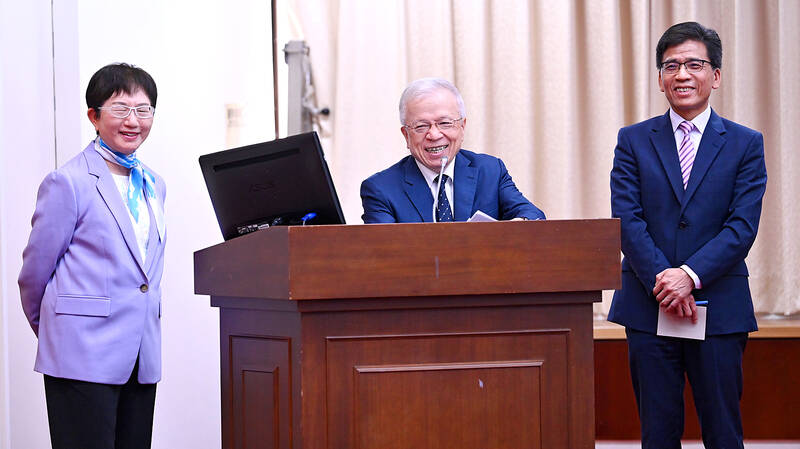By Crystal Hsu / Staff reporter
The central bank has continued to increase its holdings of US Treasuries this year, despite heightened market volatility and rising yields, Deputy Governor Yen Tzung-ta (嚴宗大) said at the legislature in Taipei yesterday.
The activity comes as Taiwan’s foreign exchange reserves expand steadily, providing room for continued reinvestment in US debt instruments, Yen said at a meeting of the Finance Committee.
With fiscal concerns and Moody’s downgrading of the US’ credit rating to “Aa1” from “Aaa” creating turbulence in the US bond market, lawmakers are zooming in on the central bank’s investment strategy and the prudence of its continued investment in US debt.

Photo: Liu Hsin-de, Taipei Times
Market concerns have mounted following a spike in long-term yields, with the 30-year US Treasury yield recently topping 5 percent.
“The central bank’s holdings of US Treasuries are primarily managed through rollover at maturity, with new purchases made accordingly,” Yen said, adding that overall exposure has edged higher this year.
Taiwan’s foreign exchange reserves climbed to US$582.83 billion last month, an increase of US$4.81 billion from the previous month and up from US$576.68 billion in December last year, Yen said.
Yen dismissed reports by foreign banks on the New Taiwan dollar’s appreciation as “overly simplistic,” saying that the central bank respects market dynamics, but would step in to smooth volatility when needed.
Earlier this month, the NT dollar surged as exporters rushed to sell the US dollar, partly on expectations that the bank would allow the NT dollar to strengthen to facilitate a trade deal with the US.
The advance might have been exacerbated by life insurers — among Asia’s biggest holders of US debt — seeking to hedge those holdings.
Bank of America Corp recently projected that toward the end of the year, the NT dollar could rise to NT$28.8 against the US dollar and to NT$27.6 next year, citing progress in global trade negotiations and a weakening greenback.
Barclays PLC and Goldman Sachs Group Inc also bet on the rise of Asian currencies.
Yen yesterday said that the NT dollar has stabilized compared with late last month and early this month.
As many factors can influence exchange rates or the international movement of the US dollar, it is inappropriate to assume that the exchange rate would reach specific levels late this year and beyond, he said.
Meanwhile, the central bank has never rejected the idea of a sovereign wealth fund, but has opposed the free appropriation of funds from the nation’s foreign exchange reserves, Yen said.
If the sovereign wealth fund needs foreign currency, it can purchase it from the central bank, he said.
President William Lai (賴清德) on Tuesday proposed creating a sovereign wealth fund to enhance connections with the world and to take advantage of industry growth.
The central bank said that the government should learn from Singapore’s and South Korea’s experience with sovereign wealth funds.
Governments are not suitable managers of such instruments, it said.
The Ministry of Finance said it would help raise money for the fund, but added that it is not a fit manager, either.